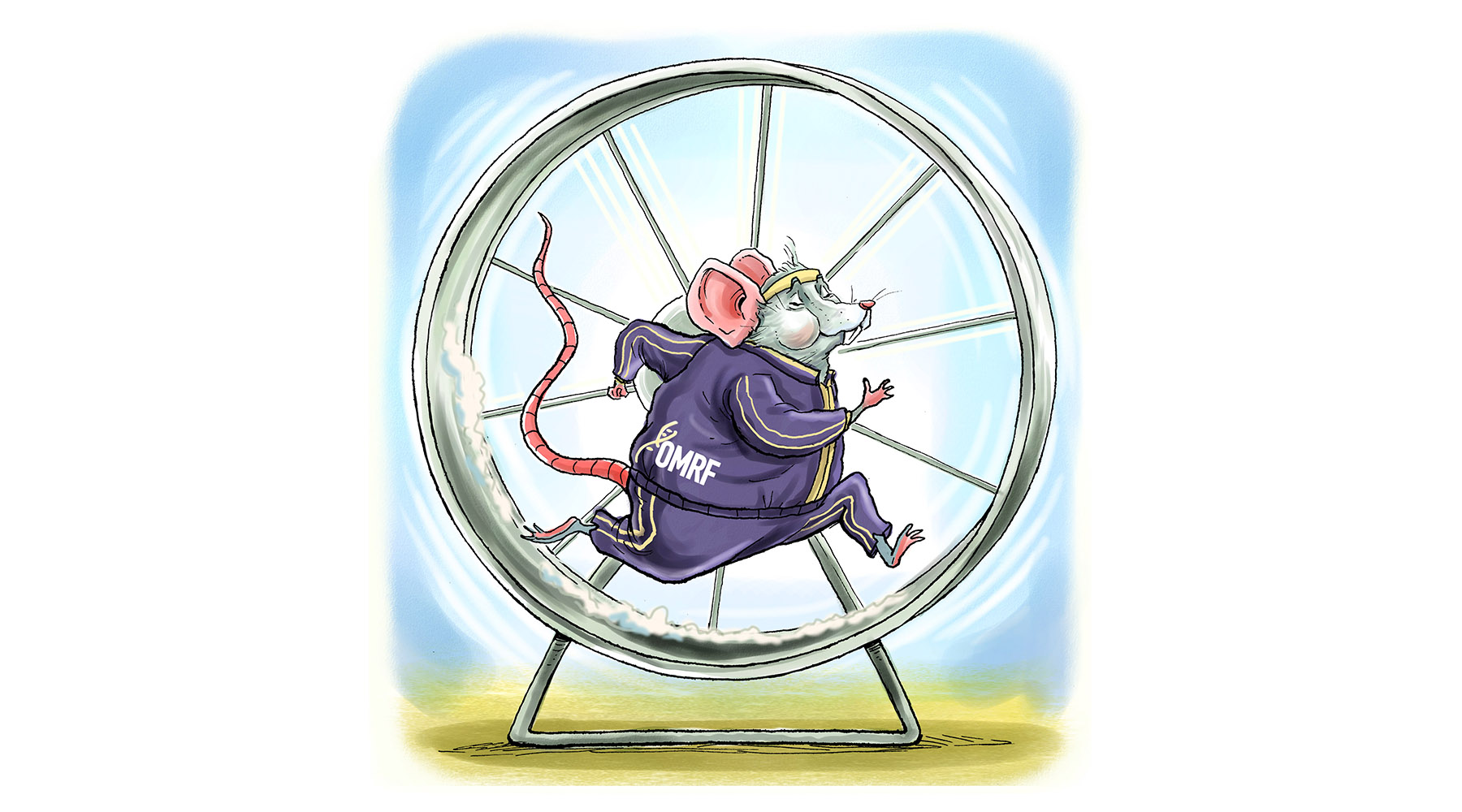Contrary to popular belief, running may actually protect against arthritis
New research from OMRF and Duke University has found that even without weight loss or a change in diet, exercise reduces symptoms of arthritis in obese mice. “This suggests that weight loss alone isn’t the only way that exercise can protect against osteoarthritis,” says OMRF’s Dr. Tim Griffin, the lead author on the study, which appeared in the journal Arthritis and Rheumatism.
The researchers fed mice a high-fat diet, and the animals gained weight. After eight weeks, they gave half of the mice exercise wheels. Researchers then compared the arthritis symptoms in these animals, which ran an average of about 3½ miles per day for four weeks, with the sedentary mice.
The mice that ran experienced fewer arthritis-related problems, despite the fact that they shed no weight and continued on the same high-fat diet as the sedentary mice.
“In some areas of the joints, exercise provided protection against osteoarthritis,” says Griffin. “The active mice also had improved blood markers associated with inflammation and diabetes, factors that may contribute to arthritis progression.”
Osteoarthritis is the most common joint disorder. Its symptoms, pain and stiffness, typically begin in middle age. Often, its causes are unknown, but obesity is a significant risk factor, and one of the major questions in the field is whether exercise will help or harm obese patients.
“Some believe that the increased impact on the joint during exercise causes further harm,” says Griffin. “But these results suggest the opposite.”
Indeed, a 2008 study from Dr. Eliza Chakravarty, now a scientist at OMRF, and colleagues at Stanford University found that runners over the age of 50 suffered fewer disabilities than their non-running counterparts. The researchers also found that running was not associated with greater risk of arthritis. “We’d anticipated that the runners were going to have more osteoarthritis and wear-and-tear injuries, and we were very surprised when that was not the case,” she says.
At OMRF, Griffin is conducting more studies to examine the long-term effects of exercise on osteoarthritis. “It’s a horrible disease to live with and one that significantly decreases the quality of life for those who have it,” he says. “Hopefully, we’ll be able to use this research to find ways to mitigate and reverse that pain.”



